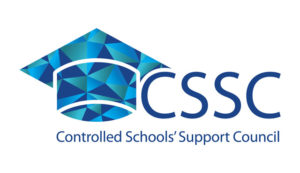The benefits of shared education

Sharing is becoming an integral part of practice for many schools. Almost 79,000 pupils from across Northern Ireland are involved in shared education through the Shared Education Signature Project and Peace IV funds. Approximately two-thirds of schools from all phases of education were involved in shared education partnerships in 2017/18, writes Jayne Millar, Head of Education Support for the Controlled School’s Support Council.
Developing shared education
Shared education encourages and supports pupils from different backgrounds and sectors to engage with one another.
Change has happened slowly, beginning with additions to the curriculum and the introduction of ‘cross-community’ contact initiatives in the 1980s. Over recent years the availability of significant funding, accompanied with a legal requirement for the Department of Education to “encourage, facilitate and promote” shared education through the Shared Education Act (2016), has driven progress. Other arm’s length bodies, including sectoral bodies such as the Controlled Schools’ Support Council (CSSC), have a power through the Act to encourage and facilitate shared education.
For CSSC, this work involves raising awareness of shared education funding opportunities amongst schools. CSSC’s School Support Officers have successfully supported a number of schools in accessing funding to participate in shared education programmes.
In March 2018, 267 controlled schools were involved in shared education delivery through the Delivering Social Change shared education signature project and Peace IV programmes, including Sharing from the Start. Many more schools are involved in shared education though other funding streams including T:BUC.
Benefits of sharing
The benefits of shared education, from the perspective of school principals, was the subject of a recent report from CSSC. Ten controlled school leaders were interviewed as part of the project, providing a snapshot of shared education practice across the controlled sector and the partnerships that exist.
Two examples of schools benefitting from shared education are Antrim Grammar School and Kilkeel High School.
Antrim Grammar is involved in a three-school shared education partnership, as well as the 19 – school “Moving Forward Together” partnership in the Antrim and Randalstown areas.
Speaking about shared education, Principal Jenny Lendrum comments: “The concept of ‘them’ and ‘us’ between the schools has broken down, our pupils are now in constant contact with one another, it has brought our community closer together. We are now regularly sharing good practice. Friendships between pupils in different schools have grown and school staff have enhanced professional relationships at all levels.”
Kilkeel High School has expanded its curriculum offer through its partnership with St Louis Grammar School. Principal Victor Coert says: “Shared education is a beneficial and worthwhile initiative. It has enhanced the teaching and learning in our school by enabling us to offer more subjects to pupils at sixth form, it has enhanced the resources we have been able to access and it breaks down barriers between staff, pupils and parents in the two schools in a very natural way. It is a journey that hasn’t reached its end.”
CSSC’s report showcases that shared education projects deliver educational benefits to children and young people, enable schools to access and share resources and support pupils and school staff to build relationships and engage with others from different backgrounds and cultures. Shared education adds to the educational experience schools offer.
CSSC will continue to encourage and facilitate controlled schools to participate in shared education. To find out more about CSSC’s work on shared education see www.csscni.org.uk.
Controlled Schools’ Support Council
Second Floor, Main Building
Stranmillis University College
Stranmillis Road
Belfast, BT9 5DY
T: 028 9531 3030
E: info@csscni.org.uk
W: www.csscni.org.uk
Twitter: @CSSC_NI






